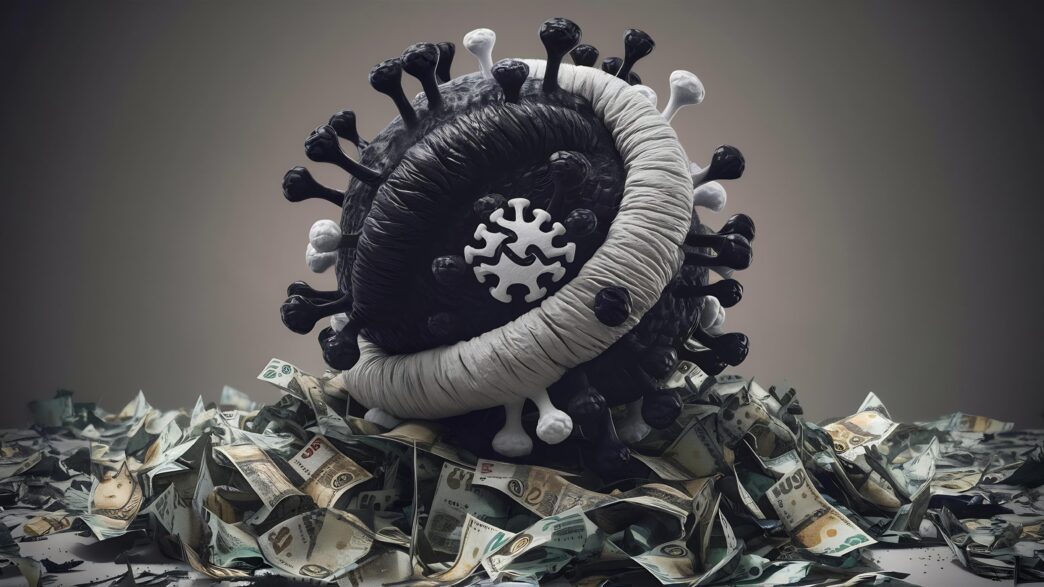Executive Summary
The Story So Far
Why This Matters
Who Thinks What?
A new global health crisis looms as a potential inevitability, prompting some of the world’s wealthiest individuals to invest heavily in elaborate preparations aimed at safeguarding their families, assets, and continuity of operations. These proactive measures, ranging from fortified bunkers and private medical facilities to resilient supply chains and advanced surveillance, reveal a profound shift in how the ultra-rich perceive and mitigate systemic risks, driven by the unprecedented disruptions witnessed during the COVID-19 pandemic and a long-term outlook on future threats. The question remains whether sheer financial might can truly insulate them from a global catastrophe, or if their strategies merely highlight a growing chasm in preparedness between the elite and the general population, raising significant societal and ethical questions about resilience and resource allocation.
The Post-COVID Imperative: Lessons Learned by the Ultra-Rich
The COVID-19 pandemic served as a stark wake-up call, exposing vulnerabilities in global supply chains, healthcare systems, and social stability that even immense wealth could not immediately counteract. For billionaires, the experience underscored the fragility of modern society and the potential for widespread disruption to personal safety, business operations, and financial markets. This realization has spurred a strategic pivot towards comprehensive, multi-faceted preparedness.
Many observed how public infrastructure buckled under pressure, leading to shortages of essential goods, overwhelmed hospitals, and travel restrictions that severely impacted mobility. This direct experience fueled a desire to build parallel, private systems capable of functioning independently during a crisis. The goal is not merely survival, but the maintenance of a high quality of life and operational continuity, regardless of external circumstances.
Fortress Living: Physical Sanctuaries and Self-Sufficiency
Underground Bunkers and Remote Estates
One of the most visible aspects of billionaire pandemic preparation is the investment in high-tech, fortified bunkers and remote, self-sustaining estates. These aren’t the rudimentary shelters of the Cold War era, but sophisticated underground complexes equipped with advanced air filtration systems, hydroponic gardens, and ample provisions. They are designed to withstand various threats, from biological agents to civil unrest.
Beyond underground facilities, many wealthy individuals are acquiring vast tracts of land in secluded, often picturesque locations, transforming them into self-sufficient compounds. These estates frequently feature private energy sources, extensive food production capabilities, and robust security perimeters. The aim is to create an isolated haven where resources are controlled and external dependencies are minimized.
Supply Chain Resilience and Resource Stockpiling
Learning from initial pandemic-induced shortages, billionaires are also focusing on creating highly resilient personal supply chains. This involves stockpiling not just food and water, but also medical supplies, specialized equipment, and energy reserves. Some are even investing in companies that produce these essential goods, securing direct access to production lines.
The concept extends to energy independence, with many investing in solar arrays, wind turbines, and advanced battery storage systems for their properties. This ensures that critical infrastructure, from communication systems to climate control, can operate uninterrupted even if public grids fail. The emphasis is on complete autonomy from public utilities and global logistics.
Private Healthcare and Biotech Investments
Personalized Medical Ecosystems
Access to top-tier medical care is paramount for the ultra-rich during a health crisis, leading to the creation of highly personalized medical ecosystems. This includes retaining private doctors and medical teams, establishing advanced diagnostic labs on their properties, and even securing direct access to experimental treatments. The focus is on rapid diagnosis, preventative care, and immediate intervention.
Beyond personal care, many billionaires are actively investing in biotechnology and pharmaceutical companies, particularly those focused on vaccine development, antiviral therapies, and advanced diagnostics. These investments not only offer potential financial returns but also provide early insight and potential priority access to breakthrough medical solutions during a pandemic.
Genomic Sequencing and Health Data
A growing trend involves leveraging cutting-edge genomic sequencing and comprehensive health data tracking for proactive health management. Billionaires are often among the first to adopt technologies that map their genetic predispositions to diseases, allowing for highly personalized preventative strategies. During a pandemic, this data could inform tailored medical responses and risk assessments, potentially offering an edge in avoiding severe illness.
Digital Defenses and Secure Mobility
Cybersecurity and Secure Communications
In a world increasingly reliant on digital infrastructure, cybersecurity is a critical component of pandemic preparedness. Billionaires are investing heavily in robust digital defenses to protect their personal data, financial assets, and communication channels from cyber threats. Secure, encrypted communication systems are essential for maintaining contact with their operations and families, especially if public networks become compromised.
This includes private server networks, satellite internet access, and advanced encryption protocols to ensure that sensitive information remains confidential and accessible only to authorized individuals. The goal is to build a digital fortress that complements their physical one, ensuring resilience in the information sphere.
Private Aviation and Global Mobility
The ability to move freely and safely across borders, even during lockdowns, is a key strategic advantage for the wealthy. Private jets and yachts offer unparalleled mobility, allowing billionaires to bypass commercial travel restrictions and potential exposure risks. Many also hold multiple passports or have established alternative residencies, providing options for relocation to safer jurisdictions during a crisis.
Security teams are often integral to these mobility plans, ensuring safe passage and protection at all times. These teams are trained not just in personal security, but also in logistical planning for crisis scenarios, including medical evacuation and secure transportation of family members.
The Ethical Quandary: Inequality and Societal Impact
While these preparations offer significant advantages to the individuals undertaking them, they also raise profound ethical questions about inequality and societal resilience. The sheer scale of resources being directed towards private pandemic preparedness highlights a growing divide between the ultra-rich and the general population, who lack the means to build such elaborate safeguards.
Critics argue that such extensive private preparations can exacerbate resource hoarding, potentially diverting critical supplies or expertise away from public health efforts. Furthermore, the ability of the wealthy to isolate themselves from global crises can undermine collective action and solidarity, which are often crucial for overcoming widespread threats. The perception of an elite class insulated from shared suffering can erode public trust and social cohesion.
Can Wealth Truly Outsmart a Pandemic?
Despite the comprehensive nature of these preparations, the question remains whether even immense wealth can truly “outsmart” a global pandemic. Viruses do not discriminate based on income, and while personal fortresses can offer a degree of protection, complete isolation from an interconnected world is virtually impossible. A truly catastrophic pandemic could still impact global infrastructure, supply chains, and social order in ways that even the most elaborate private systems cannot fully mitigate.
Moreover, the long-term economic and social consequences of a severe pandemic would inevitably ripple through all segments of society, affecting even the wealthiest through market crashes, political instability, and widespread societal breakdown. While individual preparedness can certainly enhance survival odds and comfort, it cannot fully insulate anyone from the systemic shockwaves of a global biological threat.
A Call for Collective Resilience
The intense focus of billionaires on personal pandemic preparedness serves as a powerful indicator of the perceived risks of future global health crises. While their individual strategies highlight innovative approaches to personal security and resource management, they also underscore the urgent need for robust public health infrastructure and equitable access to resources for all citizens. True resilience against a global pandemic will ultimately depend not just on individual wealth, but on collective societal strength, cooperation, and a shared commitment to global well-being.








